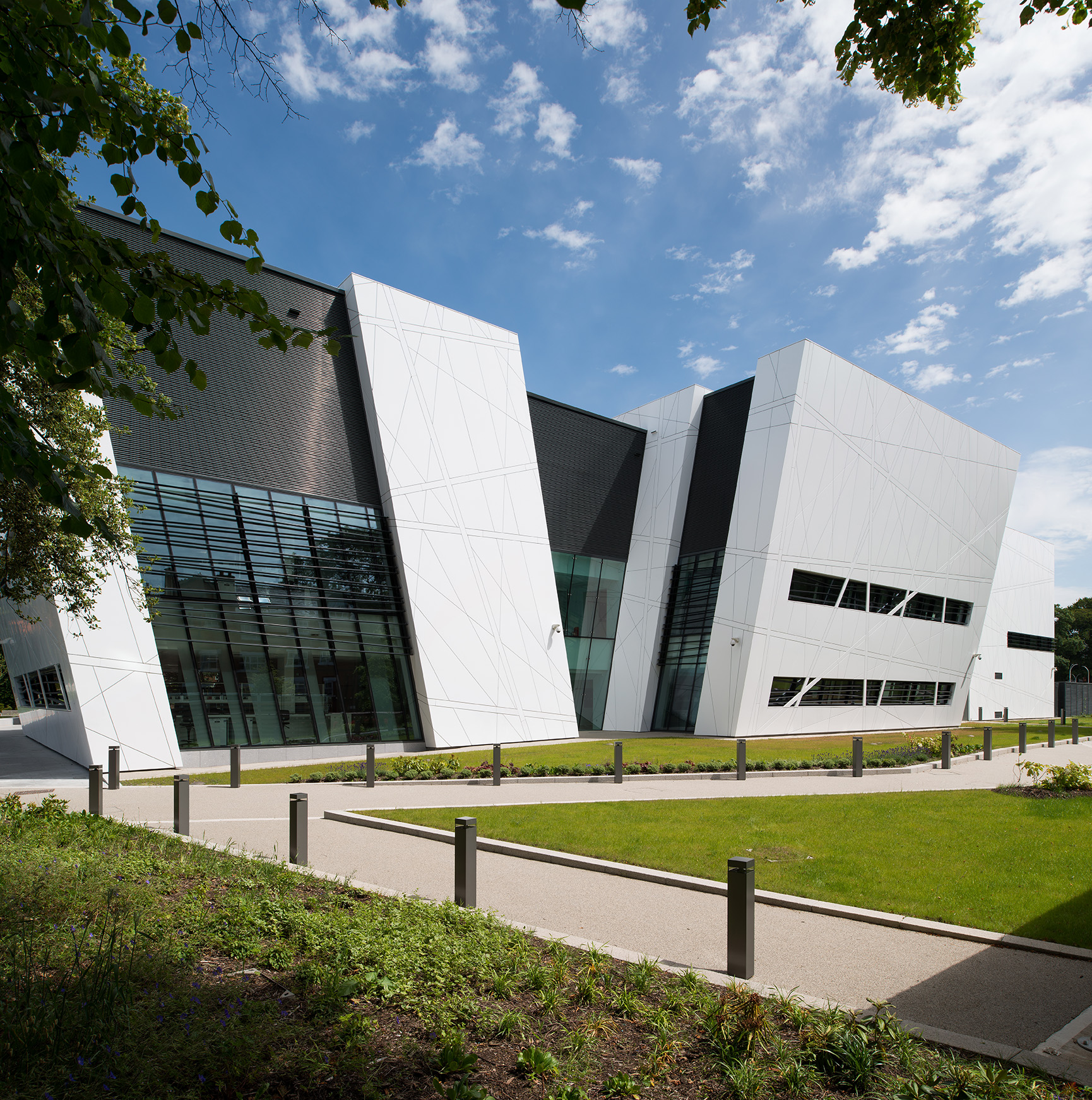Closing date: 04/04/2025
CRUK Black Leaders in Cancer Non-Clinical PhD Scholarship: Investigation of the role of the small GTPase RAC1 in invasion and metastasis of Small Cell Lung Cancer
Lead Supervisors: Prof. Angeliki Malliri
Co-Supervisors: Dr Andrew Gilmore, Dr Kathryn Simpson, Dr Colin Lindsay, Prof. Caroline Dive
Applications Deadline: Friday 4th April 2025
Interviews: Week commencing 28th April 2025
Non-Clinical Studentship start date: September 2025
Project Keywords: Invasion, RAC1, SCLC
Research Opportunity: Non-Clinical Studentship leading to the award of PhD
Project Outline
Small cell lung cancer (SCLC) is an aggressive tumour, where 80% of patients have metastatic disease at diagnosis. Underlying this aggressiveness is intra-tumoural heterogeneity. Most SCLC tumours contain two different cell types, the majority being neuroendocrine (NE) with a small subset of non-neuroendocrine (non-NE). A phenotype switch from NE to non-NE generates the non-NE phenotype. Importantly, SCLC tumour heterogeneity is required for metastasis as co-operation between both cell types is needed.
The mechanistic understanding of NE to non-NE transition and its role in SCLC invasion and metastasis has been hindered by the lack of plasticity of established SCLC cell lines. However, we are fortunate to have access to patient circulating tumour cell-derived explant models which can undergo NE to non-NE transition. Using these, we have recently shown that the small GTPase RAC1 is highly active in non-NE cells and promotes NE to non-NE transition. RAC1 is a molecular switch, cycling between inactive GDP and active GTP-bound forms. Active RAC1 has established roles in stimulating migration/invasion of several cancer cells, but its role in migration/invasion and metastasis of SCLC is unknown.
Given the established roles of RAC1 in migration/invasion, its role in NE to non-NE transition and the requirement of both NE and non-NE cells for metastasis, this project aims to decipher the molecular and cellular mechanisms by which RAC1 signalling stimulates invasion and metastasis of SCLC both in vitro and in vivo. This project combines the expertise of the supervisory team in RAC1 signalling, matrix and SCLC biology with access to unique SCLC patient-derived models, presenting an unparalleled opportunity to uncover the mechanisms underpinning SCLC progression.
The supervisory environment is supportive and values inclusivity and diversity. The student will present their work internally and at scientific conferences and receive mentoring for successful career progression alongside valuable training in transferable skills.
Applications for this project are now open. Please complete your application on the Windsor Fellowship website.
About Professor Angeliki Malliri (project Lead Supervisor)
Angeliki completed her bachelor’s degree in Biology at the University of Patras and obtained her PhD from the University of Crete, Greece. She worked as a postdoctoral scientist at the CRUK Beatson Institute (Glasgow) and Netherlands Cancer Institute (Amsterdam). She established her research group in 2004 at CRUK Manchester Institute and moved to Division of Cancer Sciences of the University of Manchester in March 2024. The main interest of her laboratory has been the mechanisms controlling and mediating cell migration and invasion, definitive characteristics of malignant cells essential for metastasis, focusing on KRas-mutant lung adenocarcinoma and small cell lung cancer.

Key information
Before submitting an application, please ensure you have read the information below about the funding arrangements and eligibility for Non-Clinical Studentships.
We also encourage you to get in contact with the lead supervisor to discuss the project and any particulars.
Further information is available on the Non-Clinical PhD Studentships webpage.
Our Non-Clinical PhD Studentships are usually funded for four years, with funding covering:
- Project running costs
- University tuition fees university tuition fees (at the UK rate, with some scholarships available for high-performing EU/International candidates)
- An annual stipend of £21,000 to help with living costs
Studentships are highly competitive and so we encourage you to contact any supervisors who you are interested in working with before applying for our Non- Clinical PhD Studentships.
International Candidates
The University of Manchester aims to support the most outstanding applicants from outside the UK.
We are able to offer a limited number of bursaries to high-performing EU and international candidates, covering PhD fees only. Bursaries do not include financial support for visa/health surcharges.
We assess each EU and international candidate’s suitability for a bursary at the application and interview stages.
This programme is aimed at students from Black heritage backgrounds pursuing a PhD in cancer-related fields. This scheme is open to people who self-identify as being from a Black heritage background, including a mixed background, for example: Black African, Black Caribbean, Black Other, Mixed background (to include Black African, Black Caribbean or other Black backgrounds).
The funding for this studentship covers students with UK Home tuition fee status only. However, the CRUK Manchester Centre are able to offer a number of overseas fee scholarships to candidates deemed appointable at interview. These scholarships cover fees only and do not visa costs. In exceptional circumstances, funding for the international health surcharge (for the student only and not dependents) may be made available.
The standard CRUK Manchester Centre PhD programme and studentship academic eligibility criteria are:
- A first or upper second-class honours degree (or equivalent from a non-UK university) in a relevant subject.
- Appropriate research experience as part of, or outside of, an undergraduate or masters degree course in a relevant subject.
- Appropriate English language skills.
Applications for this programme are now open. Please follow the steps below to complete your application:
Step 1: Contact the MCRC Training team to discuss your suitability for your chosen project.
Step 2: Visit the Windsor Fellowship website for further details and to log your application with them.
Step 3: Please then submit a full application for a BLiC PhD on The University of Manchester application portal.
Key dates
- Applications open: Monday 3rd March 2025
- Application deadline: Friday 4th April 2025
- Interviews: Week commencing 28th April 2025
- Start date: September 2025
Useful Links
Submit your application
Interested in applying for this opportunity? Go to The University of Manchester website to submit your application.
Non-Clinical PhD Studentships
Learn more about our Non-Clinical PhD Studentships.
Get in Touch
Contact Dr Yasmin Noori Jenaghard, Postgraduate Programme Manager.
Researcher Stories
Read first-hand experiences of from cancer scientists from across Manchester.
Why Manchester?
Find out why postgraduate students choose to study in Manchester.
A Day in the Life of a Non-Clinical PhD Student
Watch our short video to see what it's like to be a Non-Clinical PhD student in Manchester.





